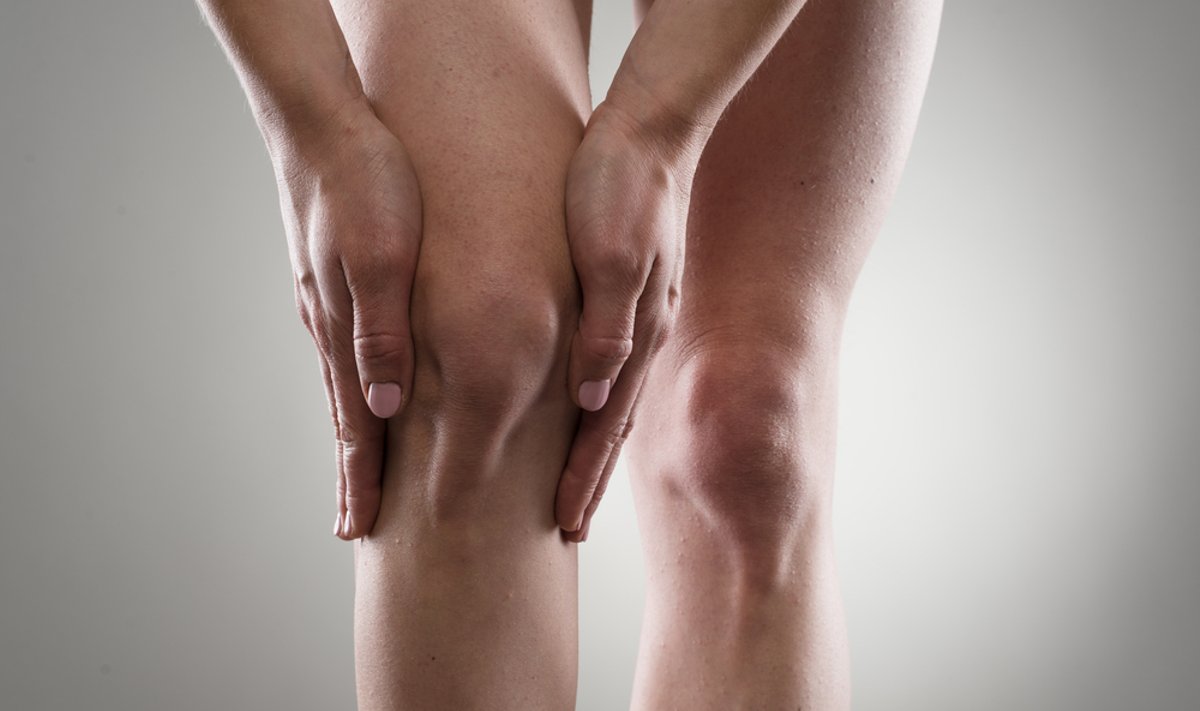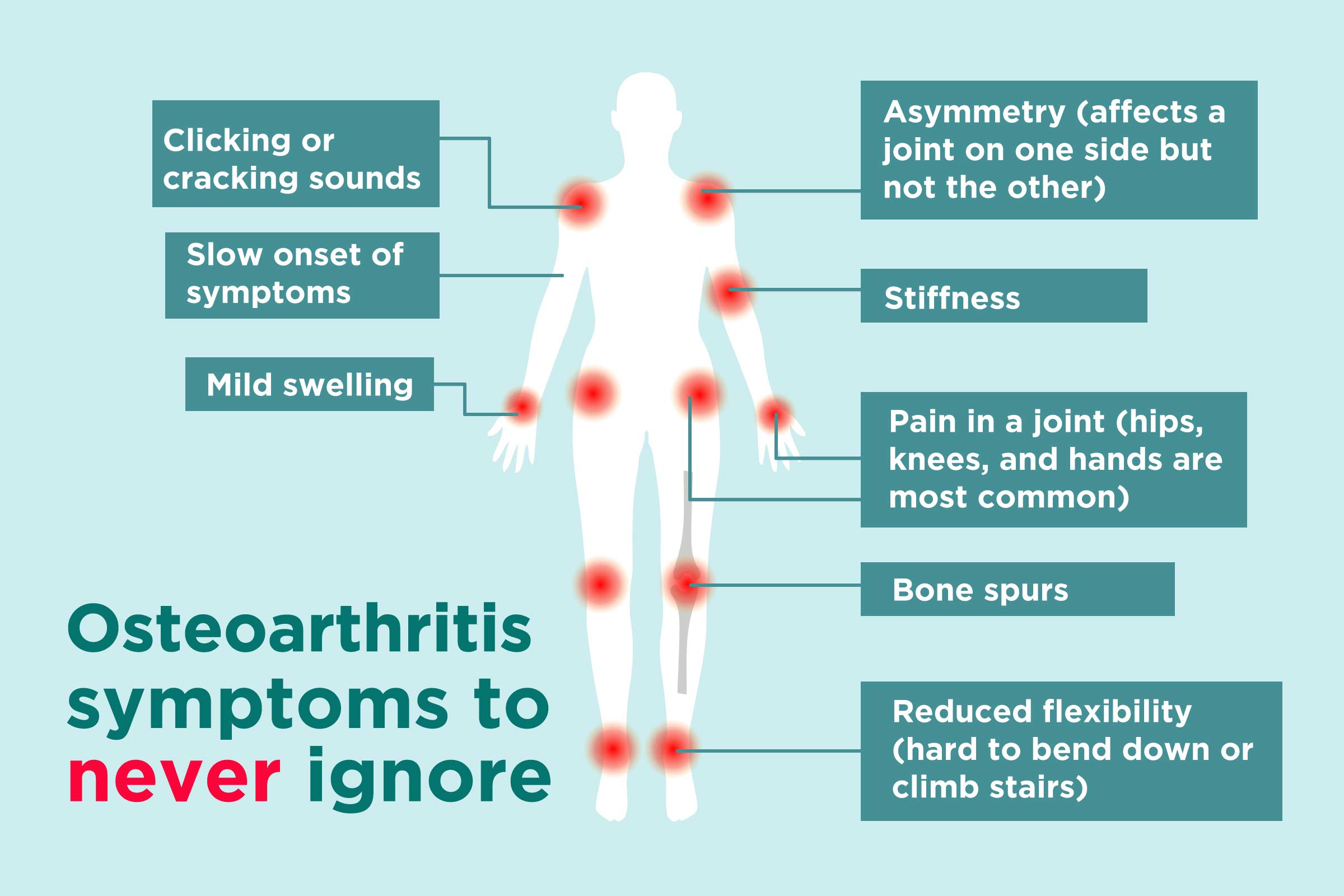
Arthritis is a joint disease characterized by inflammation, pain, swelling, and limited movement, and is one of the most common pathologies of the locomotor system worldwide. It is a term that encompasses more than 100 different inflammatory joint conditions, each with its own causes and treatment methods. Arthritis can affect people of any age, gender, or ethnic group.
What are the types of arthritis?
Arthritis includes many different inflammatory joint conditions, each with unique characteristics, causes, and treatment strategies.
Osteoarthritis, the most common type, is associated with the wear and tear of joint cartilage due to age, trauma, or excessive load, causing pain, stiffness, and limited movement, most often affecting the knees, hips, hands, and spine.
Rheumatoid arthritis is an autoimmune disease in which the body's immune system attacks the joints, causing inflammation, swelling, pain, and eventually joint deformities. This type can affect various body parts and cause general symptoms, such as fatigue and weight loss.
Psoriatic arthritis is another autoimmune disorder often accompanied by the skin condition psoriasis; it causes joint inflammation and can include severe swelling, skin changes, and nail damage.
Gout is a unique type of arthritis caused by an excess of uric acid in the blood, depositing in the joints and causing intense pain, especially in the joints of the toes.
Juvenile idiopathic arthritis (JIA) is a form of arthritis in children and teenagers, characterized by joint inflammation and pain, with symptoms varying depending on the type of JIA.
Other rarer forms of arthritis include ankylosing spondylitis, which mostly affects the spine and can cause joint stiffening and pain, and infectious arthritis, caused by a bacterial or viral infection in the joint. Each of these arthritis types can have a different impact on a person's quality of life and requires an individualized approach to diagnosis, treatment, and management to ensure the best possible outcome and maintenance of life quality.
Causes
The causes of arthritis are complex and vary depending on the specific type of arthritis. These chronic joint disease causes include both genetic and environmental factors, and their interaction leads to the development and progression of the disease.
- Many forms of arthritis, including rheumatoid arthritis, psoriatic arthritis, and some types of juvenile idiopathic arthritis, are influenced by genetic predisposition. While specific genes have not yet been fully identified, it is known that certain genetic predispositions increase the risk of these diseases.
- Osteoarthritis is most commonly associated with aging. The wear and tear of joint cartilage over time is the primary cause of this type of arthritis. The degradation of joint cartilage reduces joint protection and can cause pain and stiffness.
- Autoimmune types of arthritis, such as rheumatoid arthritis, arise when the immune system mistakenly attacks and causes inflammation. This causes joint swelling, pain, and can eventually lead to joint deformities.
- In some cases, arthritis can be caused by infections. For example, infectious arthritis can occur after certain bacteria, viruses, or fungi-induced infections, which enter the joint and cause inflammation.
- Excessive body weight increases pressure on the joints, especially on the knees and hip joints. This can increase the risk of osteoarthritis and worsen the course of the disease.
- Joint injuries, such as fractures or ligament damage, as well as professional or sports activities that constantly put great pressure on certain joints, can cause or worsen arthritis.
- Some types of arthritis, such as rheumatoid arthritis, are more common in women. This may be related to hormonal effects and genetic differences.
- Smoking is a known risk factor for rheumatoid arthritis, and excessive alcohol consumption can increase the risk of gout.
- While a direct link between diet and many types of arthritis is not clear, it is known that certain foods can affect inflammation in the body and thus have an impact on arthritis symptoms.
Considering these factors, arthritis prevention and management often involve a comprehensive approach, including lifestyle changes, proper nutrition, weight control, and regular physical activity, to reduce risk factors and alleviate symptoms.

Arthritis symptoms
Arthritis is a complex condition characterized by various symptoms, which can vary depending on the type of arthritis and individual patient characteristics. These symptoms can affect patients' quality of life and their ability to perform daily activities:
- Joint pain: This is the most common symptom of arthritis, which can range from mild to very severe. The pain can be constant or only occur at certain times. For example, in the case of osteoarthritis, the pain often worsens after physical activity, while in rheumatoid arthritis, the pain can be more intense in the morning.
- Swelling: In many cases of arthritis, the inflammatory process in the joints causes swelling. This can be visually noticeable and often accompanies pain and warmth in the affected area.
- Joint stiffness: Common symptom is joint stiffness, especially in the mornings or after long periods of inactivity. This can hinder the performance of simple activities, such as walking or holding objects.
- Limited movement: Arthritis can limit the range of motion of a joint, making it difficult to perform certain movements or postures, such as raising an arm or bending a knee.
- Joint deformation: Long-term arthritis, especially when poorly controlled, can lead to joint deformities, as seen in the case of rheumatoid arthritis.
- General fatigue: Particularly characteristic of rheumatoid arthritis, general fatigue is a symptom that can affect the patient's energy level and overall well-being.
- Muscle weakness: Joint pain and stiffness can lead to muscle weakness around the joints, as the person may use them less to avoid pain.
- Other organ damage: Some types of arthritis, such as rheumatoid arthritis, can affect not only the joints but also other organs, including the heart, eyes, skin, lungs, and kidneys.
- Emotional impact: Long-term pain and discomfort associated with arthritis can have an emotional impact, including depression and anxiety.
These symptoms can manifest differently depending on the type of arthritis and individual patient characteristics, and their intensity can range from mild to very severe. It is important for people experiencing these symptoms to consult healthcare professionals to establish an accurate diagnosis and start effective treatment.
The importance of collagen for joint health
Collagen, as one of the main proteins in the human body, plays a vital role in maintaining joint health and functionality. It is the primary structural component in joint cartilage, ligaments, and tendons, providing them with strength and elasticity.
The importance of collagen for joint health is multifaceted:
Structural integrity
Collagen is an essential part of the structure of joint cartilages, helping to maintain their strength and elasticity. Healthy cartilages can absorb shocks and reduce friction between joints, ensuring smooth movement.
Joint lubrication
Collagen contributes to the production of joint fluid, which acts as a lubricant. This reduces friction between cartilages, decreasing wear and tear and pain during movement.
Regenerative properties
Collagen is an important component required for the renewal and healing of damaged joint tissues. It helps repair cartilages, ligaments, and tendons.
Reduces inflammation and pain
Studies show that collagen can help reduce joint inflammation and pain, especially in individuals with osteoarthritis or other degenerative joint diseases.
Joint health maintenance
Regular collagen intake, whether through diet or supplements, can help maintain joint health and flexibility, especially in older individuals or those who experience greater joint strain due to physical activity or professional work.
Prevention of joint degeneration
A particularly important role of collagen is its ability to slow down the processes of joint degeneration, characteristic of osteoarthritis and other joint diseases.

However, it is important to emphasize that collagen alone does not guarantee complete joint health. A healthy diet, regular physical activity, proper weight maintenance, and other healthy lifestyle practices are necessary to maintain optimal joint function and health. Additionally, in the presence of specific joint health disorders, professional medical care and an individualized treatment plan are required.
Information sources:
- "Arthritis: Causes, Types, and Treatment" - Medical Encyclopedia.
- "Collagen and Joint Health: Scientific Research and Benefits" - Orthopedic Journal.
- "Nutrition and Joint Health: How Food Affects Arthritis" - Institute of Nutrition and Dietetics.
# artritas






